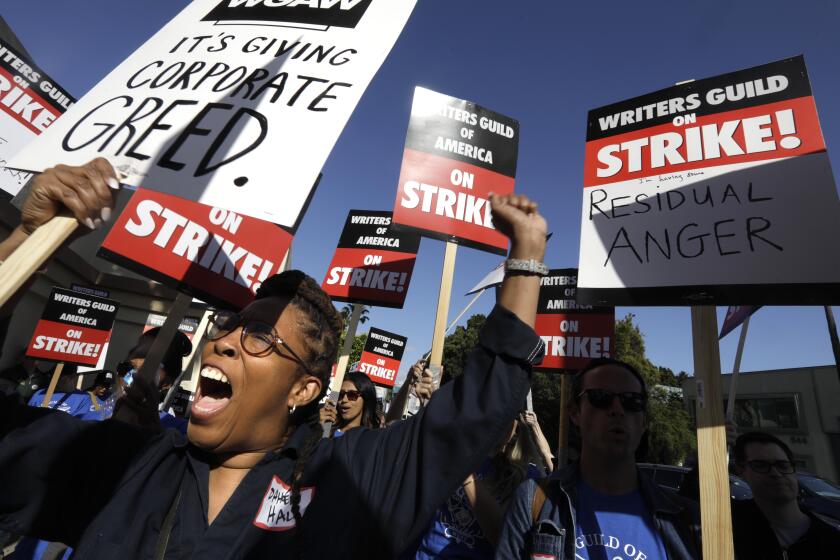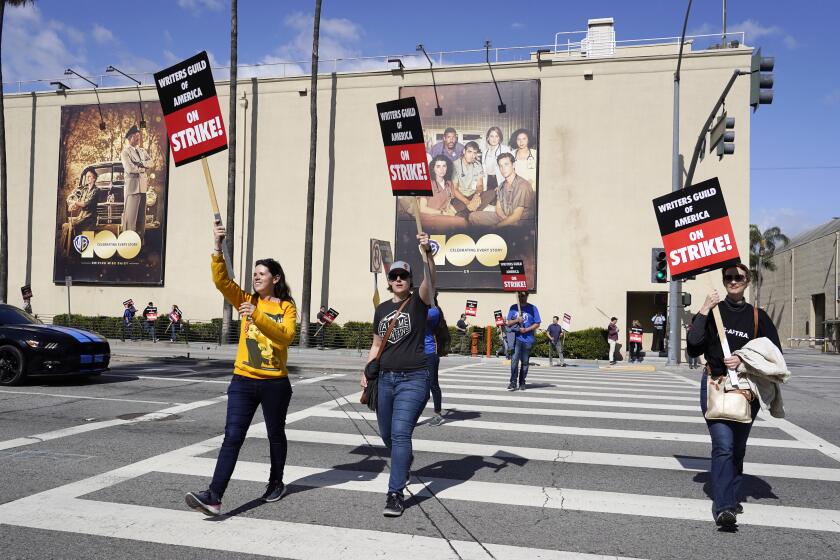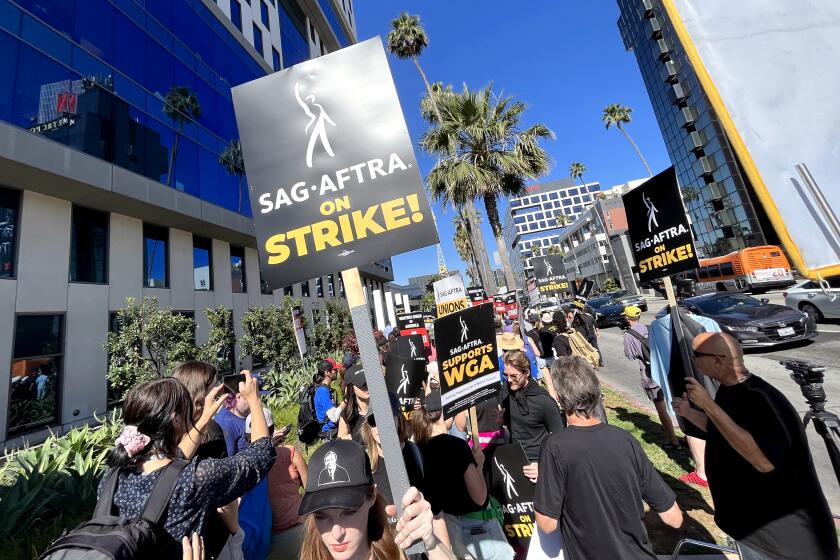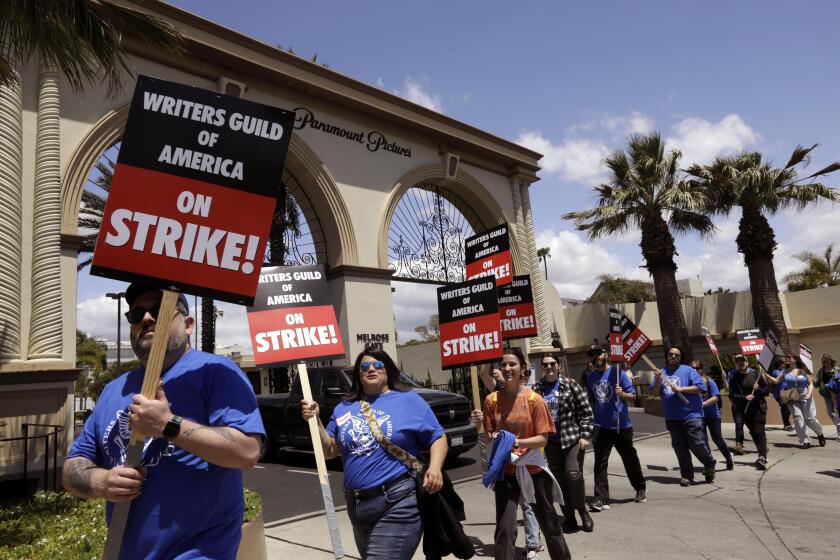Column: The writers’ strike has brought studios to the bargaining table. The outcome matters for us all
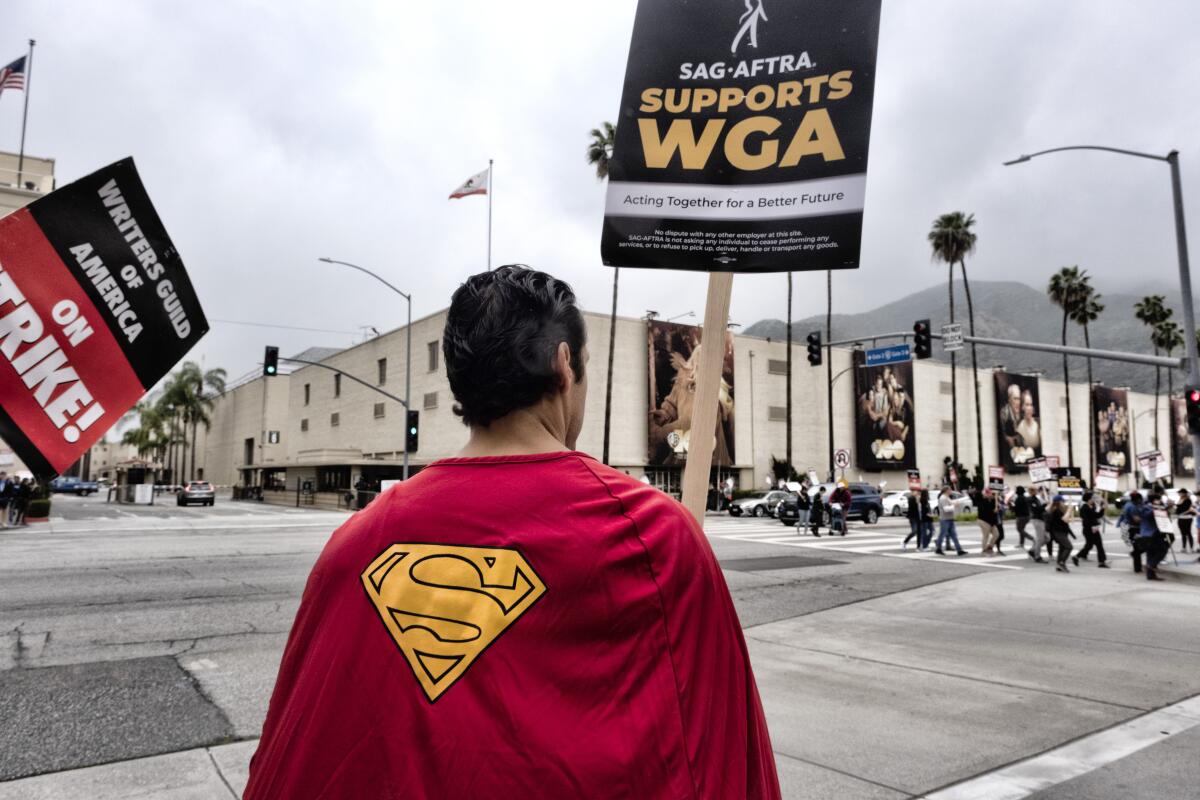
- Share via
One of my favorite places in the world is probably a used record store. Any used record store. I frequented them in high school, worked in one in college and view them as neighborhood museums wherever in the world I travel. Technology has made access to recordings more convenient, and for that I’m grateful. But I don’t go to record stores for access to recordings. I go to connect with humanity.
To do that, you need people.
Opinion Columnist
LZ Granderson
LZ Granderson writes about culture, politics, sports and navigating life in America.
When representatives from the major studios meet with the Writers Guild of America on Friday — the first time the two parties will do so since the strike began three months ago — I hope film executives remember the “humanity” part in their negotiations. Technology can connect us with other humans. But it cannot connect us to ourselves. That’s what being a creative — actor, writer, musician — is all about: exploring what it means to be human.
The writers’ strike is about more than equitable revenue sharing. It’s also about valuing lived experiences and understanding how those experiences enrich life. Every writer, be they a novelist, a screenwriter or a journalist, starts each project with a blank screen. Artificial intelligence can fill that blank screen with words, but humanity is what brings those words to life.
Actors are joining the picket line with writers, who have already been striking since May. It’s time for some political pressure to get the parties back to the negotiating table.
The goals of corporate America, including the major studios, are usually in conflict with those of the creative professionals. And that’s business, and that’s perfectly fine. What’s not OK is devaluing the human experience in order to please shareholders.
Used record stores are an excellent reminder.
I don’t shop at those places to find specific recordings. I want to know what people in the area listen to. I want to feel the rush of stumbling across a gem or making eye contact with someone who loves John Coltrane more than I do. I want to feel alive, a state of being that isn’t easily monetized by corporate media.
A profitable new normal has yet to reveal itself in the face of big tech changes, including AI. But to produce content, you will always need creators.
Like screenwriting, journalism is also subject to shifting sands in corporate media. My friends and I in the industry are worried about the field and the future of journalism jobs. Not because of the threat of AI, mind you, but the fear that executives at publicly traded companies may be willing to sacrifice even more humanity in exchange for a bump in stocks, or that private-equity flippers might decimate another newsroom in pursuit of fleeting profits.
The economics are brutal. Many news organizations are squeezing journalists harder than ever before to produce more content with fewer people. It’s as if the creative process is being boiled down to an assembly line, turning people into carbon-based robots in order to reach numbers.
SAG-AFTRA members are willing to sacrifice the pay and exposure they need right now because actors are tired of getting a bad deal.
It can’t really happen though. Thank goodness creating doesn’t work that way. There are fears and joys. False starts and broken promises. Sometimes broken hearts. And all of that messiness is what makes a screen full of words into a life raft for someone in need of inspiration or solace. Sometimes it just feels good to know you’re not the only one going through something, whatever that something happens to be. That’s why we read. That’s why we write.
That’s what at stake here.
There’s money on the line for the screenwriters and actors, yes, but also the connective tissue that shapes culture and society.
A CEO suggested the WGA strike would end soon because writers love working. Studies show passionate workers are the most likely to be taken advantage of.
Most of us have written papers in school. We know how hard it can be. That’s what makes getting the composition across the finish line so satisfying. To be vulnerable, to overcome fear, to imagine — that’s what it means to be a writer. It’s also what it means to be human.
Major studios executives have a job to do, and they may have forgotten that human element while tabulating numbers. Let’s hope that by coming to the table on Friday they’re on a path to remembering that truth.
More to Read
A cure for the common opinion
Get thought-provoking perspectives with our weekly newsletter.
You may occasionally receive promotional content from the Los Angeles Times.

